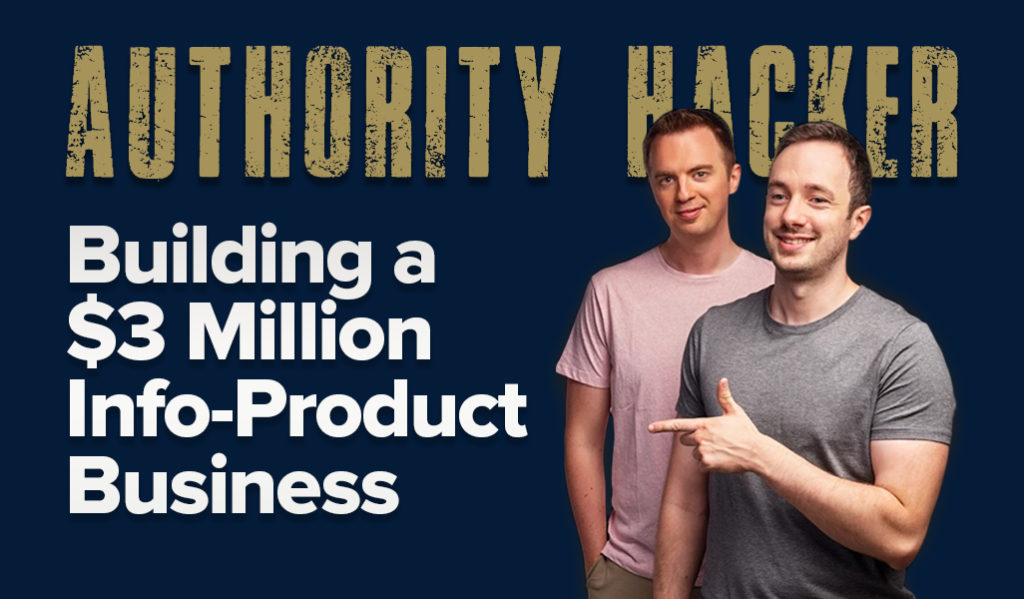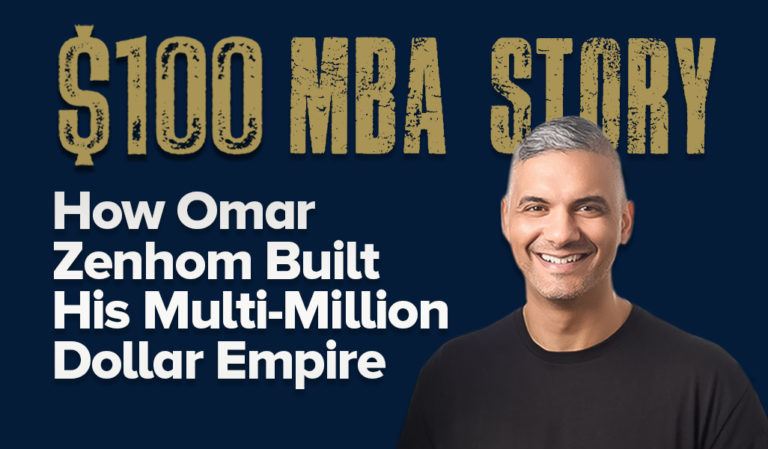
Get case studies from successful membership site founders sent straight to your inbox each week. Click the button below.
Who are you and what is your background?
[Editor’s note: This interview is with Mark Webster, one half of the AuthorityHacker.com team] I started my first online business back in 2008. At the time, I was just trying things out—review sites, content websites, info products—figuring out what worked. It took a lot of trial and error, but eventually, I found my stride. In 2010, I co-founded an SEO agency with Gael Breton. We ran it for about four years before exiting, and that same year, we launched Authority Hacker. It’s been a wild ride ever since
What is your business and when did you start it?
We started Authority Hacker in 2014, honestly, because we were tired of running an agency and dealing with clients who didn’t really “get it.” We just wanted to focus on the stuff we loved—geeking out on marketing strategies and sharing what we learned. At first, it was just a blog, then a podcast, and eventually YouTube. Over time, people really resonated with our structured, no-nonsense way of breaking down complex topics. Teaching not only helps our audience but also pushes us to refine our own strategies, which has been incredibly rewarding.
What was your professional situation right before starting the membership site?
Authority Hacker started as a passion project. We had no grand monetization plan—just a desire to create cool content and help people. It was fun to nerd out on marketing strategies and see who found value in it. As our audience grew and we built up an email list, it naturally evolved into creating courses and memberships to meet the demand for more in-depth guidance. Looking back, we just trusted the process, and it paid off.
How did you get the idea to start this particular membership business?
To be honest, we didn’t overthink it. We noticed how sleazy a lot of online marketing looked back then—flashy promises, sports cars, and martinis on the beach. It didn’t sit right with us. We wanted to create something practical, honest, and helpful. We also saw how much white-hat SEOs could learn from some of the more methodical grey-hat tactics we’d used in the past, so we set out to bridge those worlds. It felt like something that was missing, and we wanted to make it accessible to everyday people.
What was the major challenge you faced in starting or scaling it, and how did you overcome it?
Getting traction early on was tough. When you’re a new site, no one knows you, and your SEO authority is practically zero. We had to get creative. Platforms like Inbound.org (kind of like Reddit for marketers) were gold for us—we learned how to “game” the system a bit to get our posts noticed. We also left thoughtful comments on big players’ blogs like Neil Patel’s and Brian Dean’s to drive referral traffic. Once our podcast launched, things really took off. Inviting guests helped grow our network and audience. In the early days, you have to hustle outside of SEO to make SEO work.
What was growth like over the first couple of years?
The first year was slow. We made about $2,000 a month from affiliate commissions, and traffic was modest—around five figures a month. But it felt like progress, especially in such a competitive space. It wasn’t until 18 months in, when we launched our first info product, that we saw real momentum. That was the turning point where we realized we had something we could build on.
What was your specific strategy for growing it, and how did you implement that?
We kept it simple: focus on SEO and monetize through info products. At its peak, our SEO traffic hit 150,000–200,000 monthly visits. We collected emails aggressively through opt-ins and nurtured those leads with courses and memberships. We also experimented with things like retargeting on Facebook, which was great for profitability, and supported our growth with a podcast and YouTube. But SEO was always the backbone of our strategy, and doubling down on it made everything else work better.
How much money is the business making now, and what is the revenue mix?
We were making around $3 million a year from infoproducts with very little ad spend and a lean team of just 10 people. But things have shifted dramatically in the last 18 months. Google’s Helpful Content Update hit small and medium publishers hard, including us. SEO still works, but affiliate SEO is much tougher now. Our revenue has taken a big hit, but we’re pivoting and exploring new products and monetization strategies. Thankfully, having a strong audience and additional revenue streams give us a lot of flexibility to adapt and rebuild.
If you were advising someone on starting a similar company today, what would you tell them is the key area to focus on and which strategy should they use to address it?
Focus on creating an amazing product and pick one marketing channel to master. It’s easy to spread yourself thin trying to do everything at once—don’t. Go all-in on what’s working best right now, whether that’s a social media trend, SEO, or something else. At the same time, invest heavily in making a product that delivers exceptional results. People don’t just want information—they want progress. If you can help your audience achieve their goals, you’ll build a loyal customer base that can weather any competition.
What’s next for you?
We’ve thought about selling, but Authority Hacker is so tied to us personally that it never felt like the right move. Right now, we’re pivoting away from affiliate SEO and exploring new opportunities in broader content marketing, SEO strategies, and even AI. There’s so much cool stuff happening in the space, and we’re excited to share it with our audience in the coming year.
Get case studies from successful membership site founders sent straight to your inbox each week. Click the button below.


